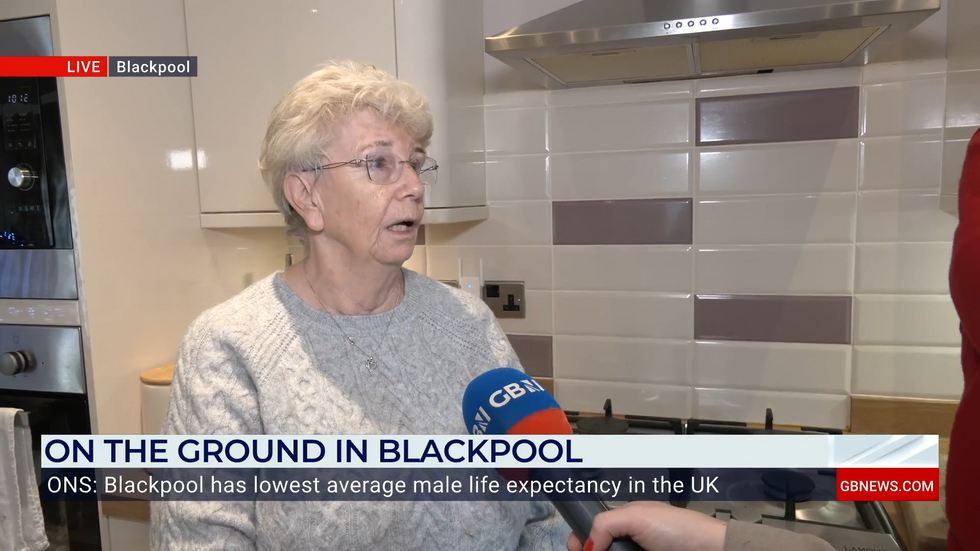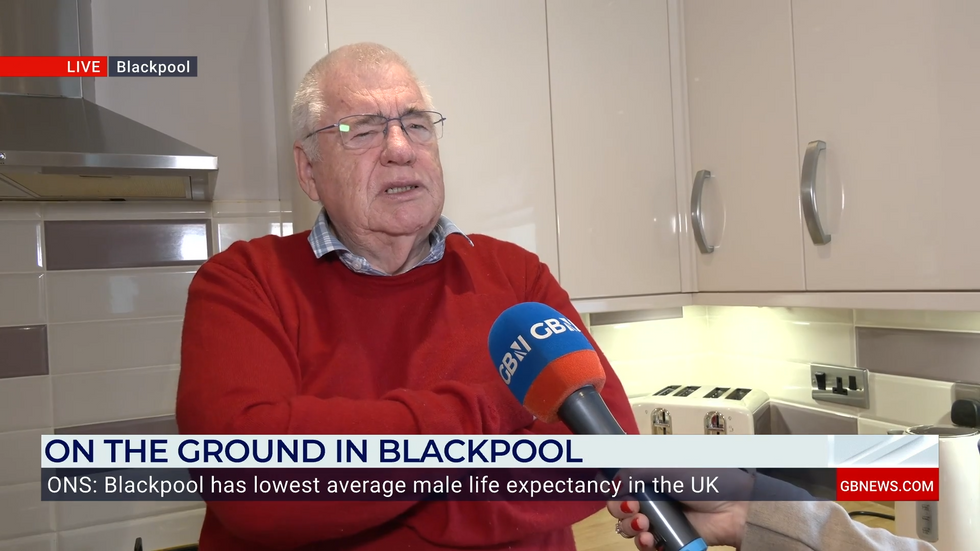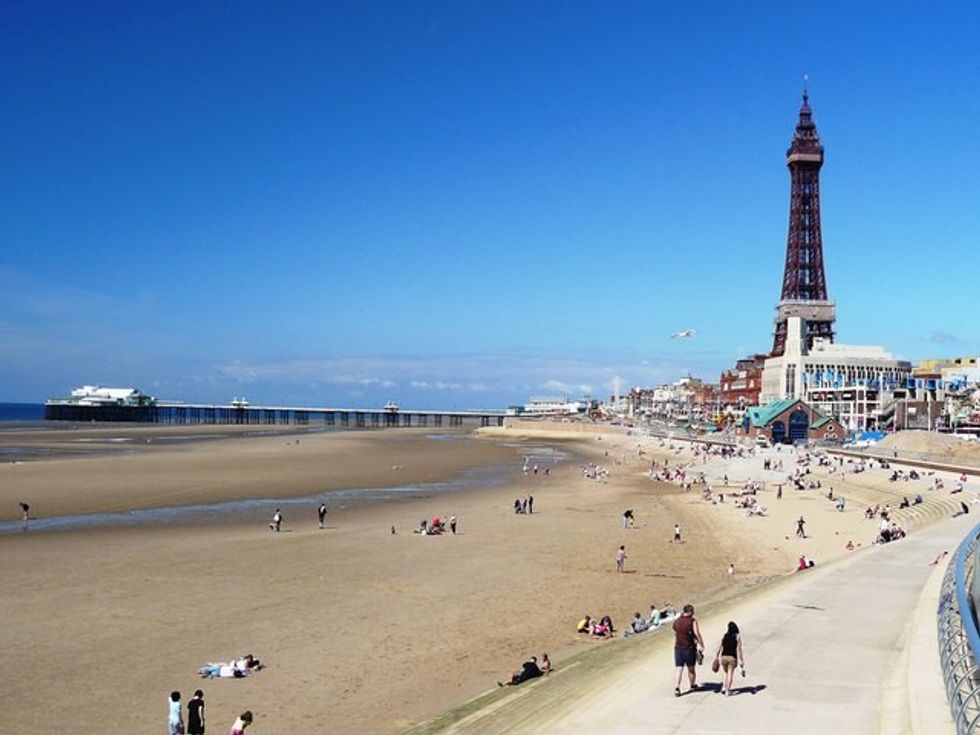‘Not supporting us!’ Blackpool pensioner blasts Labour after latest life expectancy stats
A Blackpool pensioner has hit out at Labour over a lack of support after new data revealed the town has Britain’s lowest male life expectancy.
Speaking to Sophie Reaper, a Blackpool pensioner named Jill said: “I don’t think they supporting us enough really. There’s a lot that they could do.
“There’s a lot of people that are homeless that need rehoming and everything.
“There’s a lot of land that they could put buses on and convert them into homes.

“They could do all kinds to help them. But I suppose it’s just the money situation.”
Her husband Derek had a contrasting view: “We’re a bit out on a limb here in one sense, even though it’s obviously a holiday town, I think people are reluctant to take responsibility for themselves.
LATEST DEVELOPMENTS:
- Martin Lewis responds to major update on car finance scandal after floodgates open for complaints
- ‘I’m nervy!’ Blackpool man left feeling anxious as town’s male life expectancy drops to lowest in UK
- Knife-wielding man jailed for life after frenzied knife attack on two women
“They want the council to do this, the Government to do that, everybody to make an effort on their behalf when basically it’s all down to the individual, isn’t it?
“If you don’t do it yourself, it ain’t gonna get done.”
The comments come after a different pensioner, Steven Whittaker, this morning expressed anxiety about the life expectancy statistics in his hometown.
“It makes me slightly nervy to be truthful,” the Blackpool resident told GB News.

The figures mark a historic shift in UK life expectancy statistics, with Blackpool replacing Glasgow at the bottom of the rankings.
Glasgow, which had previously held this position since records began, now has a marginally higher life expectancy of 73.6 years.
This development represents a concerning milestone for the Lancashire coastal resort.

The statistics reveal a clear north-south divide across Britain in terms of life expectancy.
Areas with the highest male life expectancy are exclusively found in southern England.
The pattern of regional disparities seen in male statistics is also reflected in female life expectancy figures.

